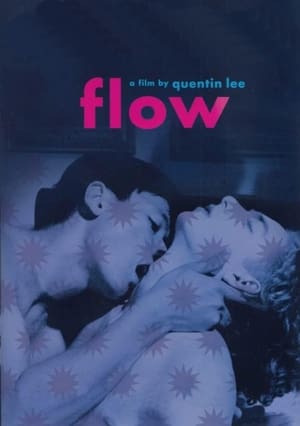

La Traviata(2001)
La traviata (Italian: [la traˈviaːta], "The Fallen Woman"[1][2]) is an opera in three acts by Giuseppe Verdi set to an Italian libretto by Francesco Maria Piave. It is based on La dame aux Camélias (1852), a play adapted from the novel by Alexandre Dumas, fils. The opera was originally entitled Violetta, after the main character. It was first performed on 6 March 1853 at the La Fenice opera house in Venice. Piave and Verdi wanted to follow Dumas in giving the opera a contemporary setting, but the authorities at La Fenice insisted that it be set in the past, "c. 1700". It was not until the 1880s that the composer and librettist's original wishes were carried out and "realistic" productions were staged.[3]


Movie: La Traviata
Top 6 Billed Cast
Flora Bervoix
Annina

La Traviata
HomePage
Overview
La traviata (Italian: [la traˈviaːta], "The Fallen Woman"[1][2]) is an opera in three acts by Giuseppe Verdi set to an Italian libretto by Francesco Maria Piave. It is based on La dame aux Camélias (1852), a play adapted from the novel by Alexandre Dumas, fils. The opera was originally entitled Violetta, after the main character. It was first performed on 6 March 1853 at the La Fenice opera house in Venice. Piave and Verdi wanted to follow Dumas in giving the opera a contemporary setting, but the authorities at La Fenice insisted that it be set in the past, "c. 1700". It was not until the 1880s that the composer and librettist's original wishes were carried out and "realistic" productions were staged.[3]
Release Date
2001-03-04
Average
6.5
Rating:
3.3 startsTagline
Genres
Languages:
ItalianoKeywords
Recommendations Movies
 6.0
6.0The ROH Live: La Traviata(it)
Alfredo Germont and the courtesan Violetta Valéry fall in love at a party in Violetta's Paris salon. Alfredo is determined to cure Violetta of her tuberculosis, and the couple leave Paris and begin a contented life in the country. But Violetta's happiness is destroyed when Alfredo's father Giorgio Germont pays her a visit. Richard Eyre's stunning naturalistic production contrasts the superficial glamour of 19th-century Parisian high life with intimate scenes for Violetta with Alfredo and Giorgio Germont, culminating in the heart-breaking final act.
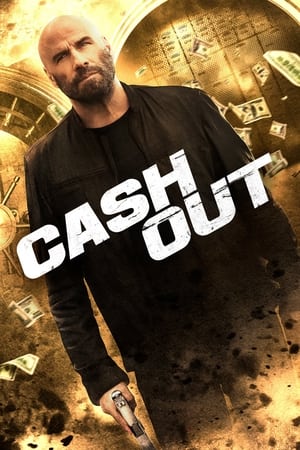 6.3
6.3Cash Out(en)
Criminal mastermind Mason is about to execute the score of a lifetime when his lover and key member of his crew, Decker, takes the team down and reveals she’s an undercover Interpol agent. Heartbroken, Mason escapes and retires from the life of crime until his younger brother Shawn is out of his league taking on a big bank heist all on his own. Mason has no choice left but to come to the rescue, while Interpol brings Decker in hoping to unnerve him. Before the SWAT teams storm the bank, Mason must use every tool in his arsenal to not only escape with the prize, but also the love of his life.
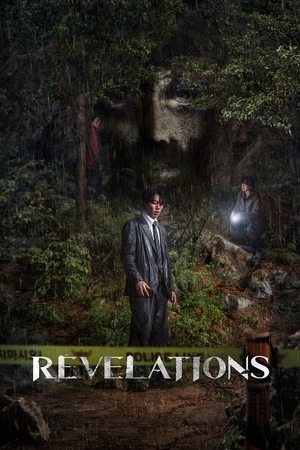 6.4
6.4Revelations(ko)
A pastor who believes in divine revelation and a detective haunted by visions pursue a missing person case — exposing their own demons in the process.
 6.5
6.5Neighborhood Watch(en)
When a mentally ill young man thinks he witnesses an abduction and the police refuse to believe him, he reluctantly turns to his next door neighbor – a bitter, retired security guard – to help him find the missing woman.
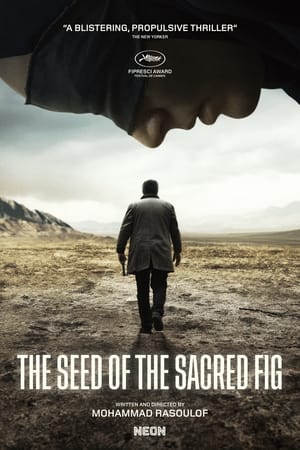 7.7
7.7The Seed of the Sacred Fig(fr)
Investigating judge Iman grapples with paranoia amid political unrest in Tehran. When his gun vanishes, he suspects his wife and daughters, imposing draconian measures that strain family ties as societal rules crumble.
 6.5
6.5Liverleaf(ja)
The story follows Nozaki Haruka, a middle school student who transfers to a new school in a small town because of her father's work. Unfortunately, she becomes a victim of horrific bullying, but since the school will be closing in 2 months after graduation, no one is willing to help her.
 6.6
6.6The F-Word(ru)
The video refers to the current protests in Belarus, political struggle and state violence through the discourse of fascism. The topic of fascism and victory over it has for a long time been central to the state ideology of Belarus.
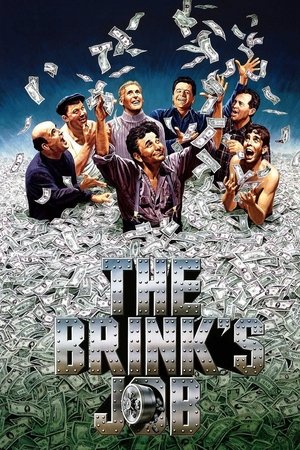 6.0
6.0The Brink's Job(en)
In 1950, a group of unlikely criminal masterminds commits the robbery of the century. Led by Tony Pino, a petty thief fresh out of prison, and Joe McGinnis, who specializes in planning lucrative capers, the gang robs Brink's main office in Boston of more than $2 million. However, things begin to go awry when the FBI gets involved, the cops start cracking down on the gang and McGinnis refuses to hand over the loot...
 6.3
6.3Eye for an Eye 2(zh)
The blind swordsman, skilled in martial arts, named Cheng Xiazi (Xie Miao), accidentally saves Zhang Xiaoyu (Yang Enyou), who has suffered from the destruction of his family. Under the persuasion of the orphan Xiaoyu, Cheng reluctantly keeps him by his side and teaches him skills. Xiaoyu also waits for the opportunity to seek revenge.
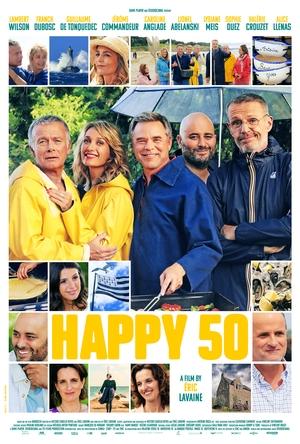 5.3
5.3Happy 50(fr)
To celebrate Yves’ 50th birthday, his friends plan to take him to the sunny paradise of Paros in Greece. But due to a cancelled flight, the holiday will take place in a far less glamorous and much rainier destination: Yves’ family home in Brittany. During the vacation, their bonds are challenged by Antoine’s constant complaining, Yves’ pride, Baptiste’s superstition and Laurent’s jealousy of Jean-Mich’s perfect life and family. On top of that, Antoine’s supposedly harmless joke – offering Yves a DNA ancestry test – has unforeseen consequences…
 6.3
6.3Raging Phoenix(th)
A young girl joins hands with a group of kung-fu masters to stop a notorious gang from abducting young women. However, the mission is compromised after they fail to locate the gang's hideout.
 6.2
6.2Night of the Living Dead: Re-Animation(en)
After inheriting the family mortuary, a pyrophobic mortician accidentally exposes hundreds of un-cremated bodies to toxic medical waste. As the corpses re-animate, the mortician's inheritance-seeking younger brother unexpectantly shows up, stumbling upon a full zombie outbreak!
 5.3
5.3Suitable Flesh(en)
A once-esteemed psychiatrist helplessly watches her life spiral into a nightmarish maelstrom of supernatural hysteria and gruesome deaths, all linked to a seemingly unstoppable ancient curse.
 6.4
6.4Lowlifes(en)
The survival instincts of a road-tripping family are put to the test when they have no other choice but to stay the night at a remote homestead.
 5.2
5.2Assassin 33 A.D.(en)
When a billionaire gives a group of young scientists unlimited resources to study the science of matter transfer, the scientists unlock the secrets of time travel. But they soon find out that the project is backed by a militant extremist group, and the billionaire plans to go back in time and prove that Jesus never rose from the dead.
 5.8
5.8Riff Raff(en)
A retired hitman's life is turned upside down when his ex-wife and son arrive unannounced during the holidays because they are on the run from his former mob associates.
Similar Movies
 7.1
7.1The Phantom of the Opera(en)
The deformed Phantom who haunts the Paris Opera House causes murder and mayhem in an attempt to make the woman he loves a star.
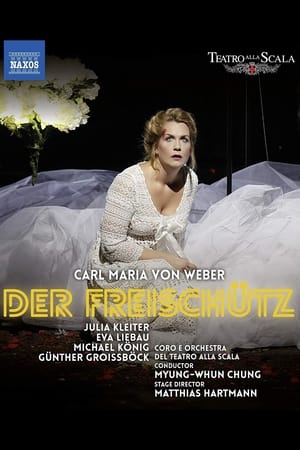 0.0
0.0Der Freischütz(de)
Weber was at the forefront of the rise of German Romantic opera and sought to dethrone Rossini from his position as the leading operatic composer in Europe. In his breakthrough and most popular opera Der Freischütz (The Marksman) composed in 1821, he succeeded in his aim of establishing a truly German form. Turning to the folklore and folk songs of his native land he took a story of a marksman who makes a pact with the Devil, vesting it with powerful intensity not least in the famous Wolfs Glen scene and an astonishing control of orchestral color and atmosphere.
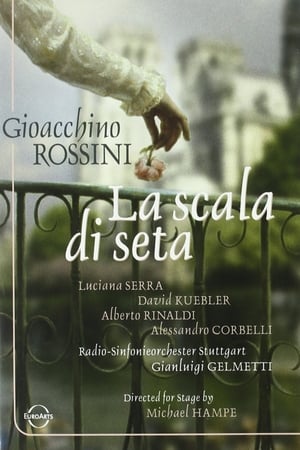 0.0
0.0La Scala di Seta - Rossini(en)
This beautiful production by renowned opera director Michael Hampe was recorded at the exquisite Rococo Theatre in Schwetzingen Palace in May 1990. La scala di seta is one of the five one-act operas - farsa giocosa - in which the young Rossini first demonstrated his operatic genius. This sparkling production continues the Rossini one-act opera series emerging from the Schwetzingen Festival. The staging is perfectly suited to the screen and the cast of principals, led by David Griffith and Luciana Serra provide musical excellence together with the flexible Stuttgart Radio Symphony Orchestra.
 7.0
7.0Cavalleria rusticana(it)
Franco Zeffirelli directs these two legendary La Scala productions telling tragic tales of jealousy. Mascagni's Cavalleria Rusticana features performances by Elena Obraztsova, Plácido Domingo, and Renato Bruson. Leoncavallo's I Pagliacci stars Teresa Stratas, Plácido Domingo, and Juan Pons. Both are conducted by George Pretre. This production of Pagliacci earned director Franco Zeffirelli the coveted Emmy as Best Director in the category of Classical Music Programming.
 6.8
6.8Così fan tutte(it)
Who loves whom in Così fan tutte, Mozart’s and Da Ponte’s cruelly comic reflection on desire, fidelity and betrayal? Or have the confusions to which the main characters subject one another ensured that in spite of the heartfelt love duets and superficially fleetfooted comedy nothing will work any longer and that a sense of emotional erosion has replaced true feelings? Così fan tutte is a timeless work full of questions that affect us all. The Academy Award-winning director Michael Haneke once said that he was merely being precise and did not want to distort reality. In only his second opera production after Don Giovanni in 2006, he presents what ARTE described as a “disillusioned vision of love in an ice-cold, realistic interpretation”.
 0.0
0.0The Metropolitan Opera: Medea(it)
Having triumphed at the Met in some of the repertory’s fiercest soprano roles, Sondra Radvanovsky stars as the mythic sorceress who will stop at nothing in her quest for vengeance. Joining Radvanovsky in the Met-premiere production of Cherubini’s rarely performed masterpiece is tenor Matthew Polenzani as Medea’s Argonaut husband, Giasone; soprano Janai Brugger as her rival for his love, Glauce; bass Michele Pertusi as Glauce’s father, Creonte, the King of Corinth; and mezzo-soprano Ekaterina Gubanova as Medea’s confidante, Neris. Carlo Rizzi conducts.
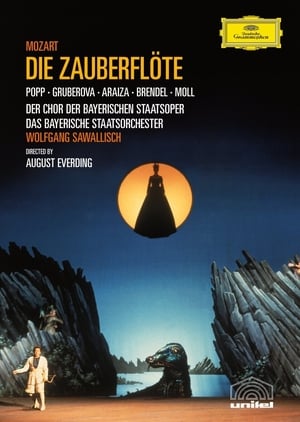 0.0
0.0The Magic Flute(de)
The Queen of the Night enlists a handsome prince named Tamino to rescue her beautiful kidnapped daughter, Princess Pamina. Aided by the lovelorn bird hunter Papageno and a magical flute that holds the power to change the hearts of men, young Tamino embarks on a quest for true love, leading to the evil Sarastro's temple where Pamina is held captive.
 8.0
8.0Amadeus(en)
Disciplined Italian composer Antonio Salieri becomes consumed by jealousy and resentment towards the hedonistic and remarkably talented young Viennese composer Wolfgang Amadeus Mozart.
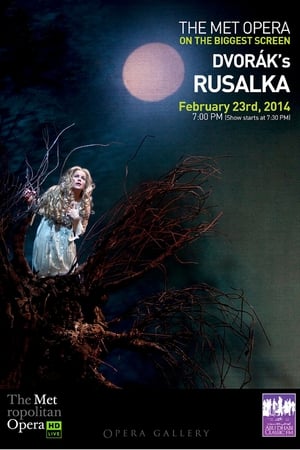 0.0
0.0The Metropolitan Opera: Rusalka(en)
Renée Fleming sings one of her signature roles, the title character in Dvořák’s sumptuously melodic Rusalka. The story of the opera, which is about a water spirit’s tragic romance with a human prince, is drawn from several folktale sources including Hans Christian Andersen’s “The Little Mermaid.” Star conductor Yannick Nézet-Séguin leads a cast that also includes Piotr Beczala as the handsome Prince whom Rusalka yearns to love; Dolora Zajick as the cackling swamp witch Ježibaba; Emily Magee as the Foreign Princess, Rusalka’s rival; and John Relyea as Rusalka’s father, the Water Sprite.
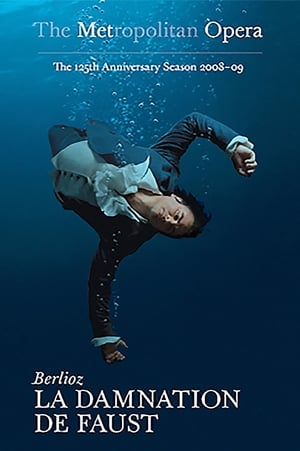 10.0
10.0Berlioz: La Damnation de Faust(fr)
Radiant mezzo-soprano Susan Graham and dashing Italian tenor Marcello Giordani are unlucky lovers in La Damnation de Faust, Hector Berlioz’s classic take on dancing with the devil.
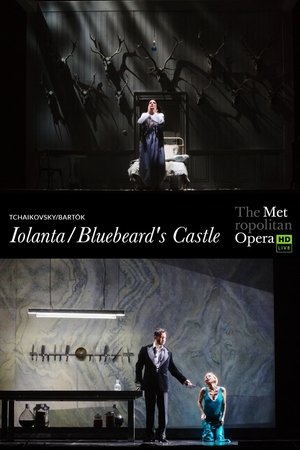 5.0
5.0Tchaikovsky: Iolanta / Bartók: Bluebeard's Castle(ru)
Valery Gergiev conducts Mariusz Trelinski’s thrilling new production of these rarely heard one-act operas. Anna Netrebko stars as the blind princess of the title in Tchaikovsky’s lyrical work, opposite Piotr Beczala as Vaudémont, the man who wins her love—and wakes her desire to be able to see. Nadja Michael and Mikhail Petrenko are Judith and Bluebeard in Bartók’s gripping psychological thriller about a woman discovering her new husband’s murderous past.
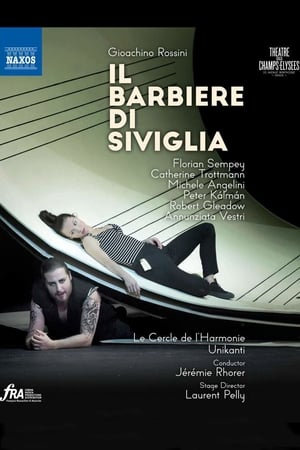 0.0
0.0Rossini: Il Barbiere di Siviglia (Théâtre des Champs-Élysées, 2017)(en)
This is Laurent Pelly’s Théâtre des Champs-Élysées staging of Rossini’s Il barbiere di Siviglia, with a cast featuring Florian Sempey as Figaro, Catherine Trottmann as Rosina, and Michele Angelini as Il Conte Almaviva. Jérémie Rhorer conducts Le Cercle de l-Harmonie.
 7.0
7.0Operette(de)
A musician is offered a job in Vienna as stage director, but his disagreements with the aristocratic opera manager end in abrupt firing in spite of a mutual attraction. He's quickly engaged by another theatre and becomes famous for his lavish stage productions and fine acting, which begins their golden age with Suppé and Strauss.
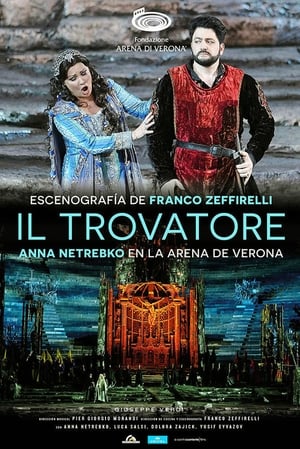 0.0
0.0Arena di Verona: Il Trovatore(it)
It's an event that draws many thousands of music lovers to one of the most beautiful cities in the world every summer: the opera season at the ancient Arena di Verona. The 2,000-year-old roman amphiteatre with its gigantic stage dimensions is one of the largest and best preserved Roman construction of its kind, and with over 22,000 seats it is undoubtedly one of the most spectacular open-air venues of the world! The revered master of opera Franco Zeffirelli, who died shortly before the premiere of Il Trovatore, created a legendary scenery with groups of giant sized armoured knights, a fortress turning into a luminous cathedral, an enormous choir, horses, breathtaking fights: “his perhaps best arena production” (Opernglas). It brings Anna Netrebko to the Arena of Verona where she is giving her much-anticipated debut in one of Giuseppe Verdi’s most popular operas.
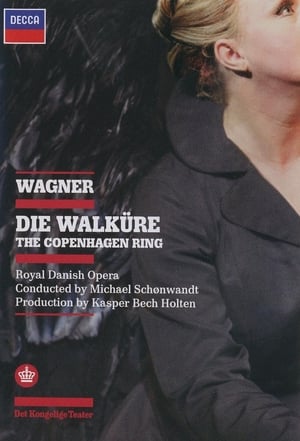 0.0
0.0Die Walküre(de)
Die Walküre (The Valkyrie), WWV 86B, is an opera in three acts by Richard Wagner with a German libretto by the composer. It is the second of the four operas that form Wagner's cycle Der Ring des Nibelungen (The Ring of the Nibelung). The story of the opera is based on the Norse mythology told in the Volsunga Saga and the Poetic Edda.[1][2] In Norse mythology, a valkyrie is one in a group of female figures who decide which soldiers die in battle and which live. Die Walküre's best-known excerpt is the "Ride of the Valkyries". DVD release June 2009.
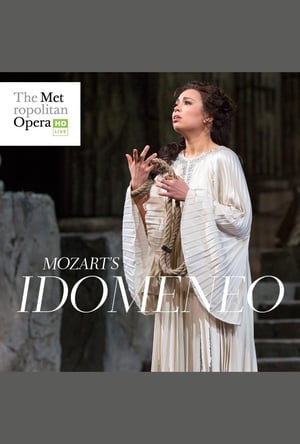 4.0
4.0The Metropolitan Opera: Idomeneo(it)
Mozart’s early masterpiece returned to the Met for the first time in more than a decade with Music Director Emeritus James Levine, who led the work’s company premiere in 1982, again on the podium. Tenor Matthew Polenzani brings both steely resolve and compassionate warmth to the title king of Crete, who is faced with an impossible decision. With her rich mezzo-soprano, Alice Coote sings the trouser role of Idomeneo’s son Idamante, who loves the Trojan princess Ilia, sung with delicate lyricism by Nadine Sierra. Elza van den Heever gives a thrillingly unhinged portrayal of the jealous Elettra. Jean Pierre-Ponnelle’s timeless production blends the grandeur of ancient myth with the elegance of Enlightenment ideals.
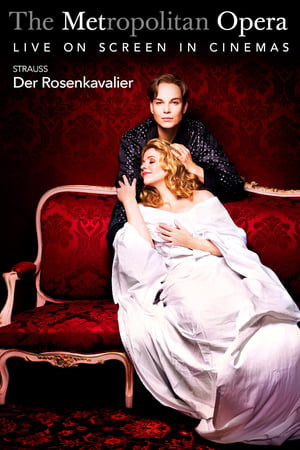 7.0
7.0Der Rosenkavalier(de)
In his new production, Robert Carsen places the action at the end of the Habsburg Empire, underscoring the opera’s subtext of class and conflict against a rich backdrop of gilt and red damask
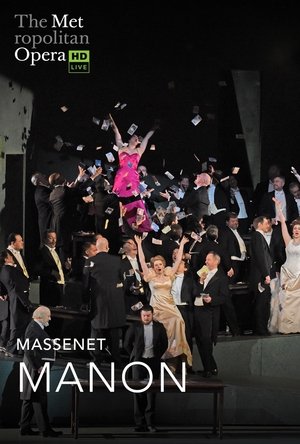 10.0
10.0The Metropolitan Opera: Manon(fr)
Massenet’s tale of passion, excess, and their consequences stars rising soprano Lisette Oropesa in the effervescent title role. Tenor Michael Fabiano is her ardent admirer, Chevalier des Grieux, with Maurizio Benini conducting Laurent Pelly’s enchanting production.



